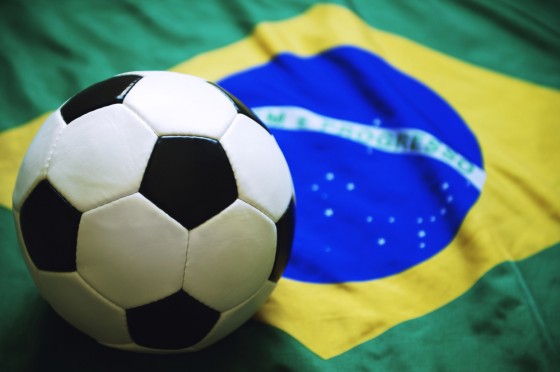 Brazil is steadily moving into the international spotlight as it prepares to host the World Cup, which begins next week on June 12, and the Olympics in 2016, both of which are forecasted to showcase its status as an emerging economic power. On the other hand, these events are also likely to amplify security risks in the country.
Brazil is steadily moving into the international spotlight as it prepares to host the World Cup, which begins next week on June 12, and the Olympics in 2016, both of which are forecasted to showcase its status as an emerging economic power. On the other hand, these events are also likely to amplify security risks in the country.
The primary risk for travelers during the World Cup is the rise of common crime in host cities.
Often times, foreigners are perceived as wealthier and thus make attractive targets for pickpockets and armed robbers as well as express and traditional kidnappers. Risk managers should be aware that preparing travelers for these crimes is the best mitigation strategy.
Beyond crime, civil unrest is also a threat. Many groups already have plans in place to protest; the magnitude of their demonstrations and effectiveness of the government’s response are factors that are unpredictable. Widespread rallies may result in localized and violent clashes with police, especially in Sao Paulo and Rio de Janeiro, where they may be larger and more frequent.
These demonstrations can also routinely halt traffic, which can force an ambulance to take an hour to reach a hospital that may only be 20 minutes away. Risk managers are advised to plan an alternative route, especially in a medical crisis.
The Proactive Risk Manager
Due diligence and intelligence are every risk manager’s responsibility, but conveying this information to travelers is critical. This includes offering pre-trip training which teaches travelers how to be self-aware, and addresses visa requirements, language and cultural information, and any relevant medical and security threats. Simultaneously, all risks, mitigation strategies and contingency plans should be clearly communicated to relevant departments.
During trips to and within Brazil, risk managers should be aware of any itinerary delays and security incidents.
Knowing where travelers are at all times is vital; traveler tracking services, often offered by assistance providers, can help enormously in case of an emergency.
Following Best Practices
As we approach the World Cup, travelers and risk managers should expect a heightened security presence of police and other law enforcement officials, especially in all 12 host cities. That said, it is easy to fall into a false sense of security. Using common sense safety precautions can help to mitigate risks and ensure peace of mind:
- Avoid exposing flashy jewelry or high-price items such as cell phones, laptops, cameras, etc.
- Always carry extra medications with you.
- Choose an indoor ATM so you don’t fall prey to express kidnappers or muggers.
- Carry only a small amount of cash with you.
buy prograf online www.scottsdaleweightloss.com/wp-content/uploads/2023/10/jpg/prograf.html no prescription pharmacy
Leave passport and credit cards in your hotel’s safe.
- Do not walk alone at night. It is best to travel in groups.
- Avoid public transportation. Hotels can assist in hailing “radio taxis” (taxis you call ahead of time to arrange a pick-up rather than cabs on the street).
- Take out comprehensive travel and medical insurance before your travel.
- Remember the local equivalent to “911″ is divided up into three services: 190 – Policia (Police), 192- Ambulancia (Ambulance), and 193- Bombeiros (Fire).
- Carry the number of the nearest English speaking hospital and an emergency contact on you.
For more on staying safe at the World Cup, read our cover story in this month’s issue of Risk Management.

Great article. Also consider: Visitors to Brazil are at risk for yellow fever. Yellow fever, transmitted by mosquitoes, is a potentially fatal viral disease. However, it is preventable by vaccination. I strongly suggest that visitors are vaccinated against yellow fever before travelling to Brazil.
Malaria is a very present risk in Brazil. Dengue fever and other insect born illnesses are also prevalent, with a higher occurrence during the wet seasons (May to August and November to January). Therefore, all visitors should take measures to avoid insect bites. Use insect repellent at all times, wear long, loose-fitting, light-colored clothing, stay inside when possible and use a mosquito net at night.
Other infectious diseases including cholera, typhoid, and hepatitis are prevalent. Rabies is also present in Brazil. We suggest you drink bottled water or suggest you boil all drinking water. Avoid ice cubes and raw and undercooked food.
– See more at: http://www.internationalinsurance.com/news/world-cup/